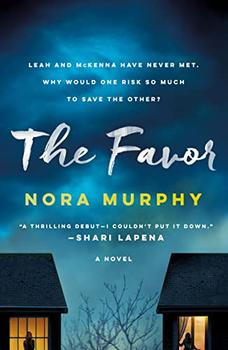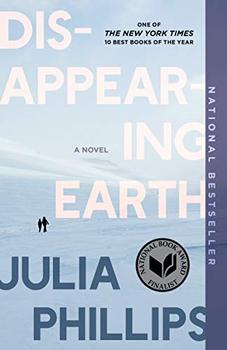Summary | Excerpt | Reading Guide | Reviews | Beyond the book | Read-Alikes | Genres & Themes | Author Bio

File this under the annals of memorable opening lines: "I remember the gunshots made a wet sort of sound, phssh phssh phssh, and each time he hit her she screamed. Do the math and the whole thing probably went on for as long as ten minutes. I just stood there and watched."
It is Patch, aka Tricky, aka Patrick McConnell, who was rooted to the ground, who did nothing as his best friend Matthew shot classmate Hannah Jensen in the eye on an otherwise idyllic August summer afternoon in 1982. That singular incident that unraveled when Patch and his friends were on the cusp of their teenage years understandably shapes the adult he will grow up to be. In 2008, Patrick is haunted, insecure, an adult with low self-esteem who has just lost his job as a financial analyst in the fallout from the Great Recession. An occasional food blogger, Patrick now has time to indulge his hobby and marinate in events from the past.
It isn't a plot spoiler to say that Patch marries the unfortunate victim of that hazy summer afternoon: Hannah. In fact, the reveal in this meticulously crafted novel is not strictly who did what when. We all know Matthew did it in the woods with Patch's BB gun. The premise that propels the plot with incredible velocity is woven around what stayed hidden in the shadows. In his sophomore outing, Yates ably explores the concept of "seeing." "What does it mean to watch?" Patch asks, "When a crime takes place in front of you, what is watching? Is it a failure to act or is it simply keeping your eyes open?" It is this idea, that seeing does not always paint the whole picture, that will play out over and over again. "The reality is there are more than two sides to most stories. Truth is seldom a lens, truth is a kaleidoscope, and I have my truth too," Matthew says. That's all very fine and dandy but when you have three unreliable narrators spilling their versions of what really happened on that summer day in the woods, whose truth do you believe?
The Swangum shooting, as it comes to be called in the small town of Roseborn, New York, will soon be cataloged and filed away with justice seemingly served, but the picture is not complete. Matthew and Hannah too have their versions of the story to narrate. Ingeniously, Yates juggles not just one suspense story, but two. The first, narrated by the three primary characters: Patch, Hannah and Matthew spin a taut web of background story and events that lead up to the devastating incident. The second, which spools out in 2008, ropes in almost everything that has been on a slow burn since 1982 and brings the whole complicated mess to a raging boil.
Yates can be faulted for tying some ends too neatly at times and for playing his cards too close to his chest. It's all very well for the characters to not see the entire picture, soaked as they are in the morass of it, but holding information from the reader too feels like a cheap trick. A couple of coincidences are just too neat to be entirely plausible. Given how messy the crime was — and subsequently how ragged the characters' lives are now — one expects a few more frayed edges and a lot less polish. Yates' sense of justice also makes him teeter on the verge of melodrama towards the very end.
However these quibbles do not distract from Grist Mill Road's stellar story and tightly plotted narrative. Yates knows how to pack a mean punch and he does so delivering plenty of momentum. Right from those memorable opening lines, you will get swept along so smoothly you'll barely notice the occasional bump.
![]() This review was originally published in The BookBrowse Review in January 2018, and has been updated for the
February 2019 edition.
Click here to go to this issue.
This review was originally published in The BookBrowse Review in January 2018, and has been updated for the
February 2019 edition.
Click here to go to this issue.

If you liked Grist Mill Road, try these:

by Nora Murphy
Published 2023
A gripping debut domestic suspense novel, Nora Murphy's thrilling The Favor explores with compassion and depth what can happen when women pushed to the limit take matters into their own hands.

by Julia Phillips
Published 2020
Spellbinding, moving - evoking a fascinating region on the other side of the world - this suspenseful and haunting story announces the debut of a profoundly gifted writer.
The worth of a book is to be measured by what you can carry away from it.
Click Here to find out who said this, as well as discovering other famous literary quotes!
Your guide toexceptional books
BookBrowse seeks out and recommends the best in contemporary fiction and nonfiction—books that not only engage and entertain but also deepen our understanding of ourselves and the world around us.